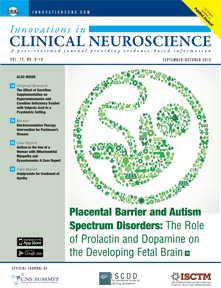 Dear Editor:
Dear Editor:
Adherence to recommendations provided by healthcare professionals to patients is of keen importance to salutary outcomes. However, patients may, for a number of reasons, be nonadherent. Given that the area of medication adherence is well studied, patient rationales for nonadherence may include, but are not limited to, forgetfulness, concerning side effects, cost of treatment, the availability of insurance coverage, ambivalence about the necessity of treatment, concerns about the potential for addiction and withdrawal with medication, pharmacy access, and regimen complexity.[1,2] In addition, there may be psychological factors such as motivation, mood disorders, trauma, and personality characteristics and disorders.[1,2] The dynamics relating to medication adherence are readily generalized to any type of medical treatment. In an effort to expand understanding of patient factors related to nonadherence, we examined among a sample of primary care patients relationships between history of medical self-sabotaging behavior and general healthcare adherence as assessed by a number of variables.
Participants in this study were men and women, ages 18 years or older, being seen by mostly resident providers in an internal medicine outpatient clinic for nonemergent medical care. We excluded individuals with compromising medical, intellectual, cognitive, or psychiatric symptoms of a severity to preclude the candidate’s ability to successfully complete a survey (n=5). Exclusion assessment was informal and undertaken by the recruiter as patients registered for clinical service (surveys needed to be completed before appointments with providers).
Of 354 individuals approached, 300 agreed to participate (84.7%). Among participants, 262 completed relevant study items: 206 (78.2%) women and 57 (21.8%) men, ages 18 to 89 years (M=45.19, standard deviation [SD]=13.89). Most participants were White (85.5%), followed by Black (8.0%). All but 5.7 percent had at least graduated high school and 29.3 percent had earned at least a bachelor’s degree.
During clinic hours, one of the authors (R.J.B.) approached incoming patients following registration, informally assessed exclusion criteria, reviewed the project focus with potential candidates, and invited each to participate by completing a five-page anonymous survey. Participants were advised to place completed surveys into sealed envelopes and then into a collection box in the lobby.
In addition to demographics, participants were administered the Self-Harm Inventory,[3] a 22-item, yes/no, self-report measure that explores respondents’ histories of self-harm behavior. Each item is preceded by the stem, “Have you ever intentionally, or on purpose,” and items include, “overdosed, cut yourself, burned yourself,” and “attempted suicide.” Three items relate to medical self-sabotage: “prevented wounds from healing,” “made medical situations worse,” and “abused prescription medication.” In addition, the survey contained the following healthcare adherence items: 1) “In general, how conscientious are you about following through with medical treatment?,” with five Likert-style response options from “Very Conscientious” to “Not Conscientious at All;” 2) five queries about general healthcare behaviors (e.g., regular dental check-ups, arrival to doctors’ appointments on time, completion of laboratory work, adherence with exercise instructions, adherence with diet instructions), with five Likert-style response options from “Never” to “Always” as well as “Not Applicable;” and 3) the Medical Outcomes Study (MOS) General Adherence Items,[4] which explores general medical adherence with “my doctor” over the past four weeks (Table 1). All items were recoded such that higher scores indicate higher levels of adherence.
The project was exempted by the institutional review boards of the sponsoring hospital and the local university. Completion of the survey was explained to the participants on the cover page to be consent to participate in the study.
Of the 262 respondents, 23 (8.8%) reported having ever made a medical situation worse on purpose, nine (3.4%) reported having ever prevented a wound from healing, and 25 (9.5%) reported having ever abused prescription medication on purpose. We created an index of intentional medical self-sabotage behavior by summing endorsement across these three items. Most respondents (82.4%) denied all three such behaviors, 35 (13.4%) reported one, 11 (4.2%) reported two, and none of the respondents endorsed all three medical self-sabotage behaviors. Simple correlations between this index and the measures of healthcare adherence are presented in Table 1.
Findings indicate that compared with peers, individuals with particular forms of past medically self-sabotaging behaviors are equally adherent with perfunctory or mechanical aspects of healthcare (e.g., regular dental appointments, on-time arrival for doctors’ appointments, completion of laboratory work), but are not as conscientiousness with healthcare or healthcare guidance/counsel. Thus, medical self-sabotage may be added to the list of psychological factors for nonadherence among patients in primary care settings. Future studies might explore linkages between medical self-sabotage and various psychiatric syndromes (e.g., depression, personality disorders).
The limitations of this study include use of self-report data, small sample size, lack of corroboration between self-report and actual healthcare adherence, and small number of variables assessing medical self-sabotage. Despite these limitations, the findings add to our growing list of patient factors that contribute to nonadherence to healthcare.
References.
1. Sansone RA, Sansone LA. Antidepressant adherence: are patients taking their medications? Innov Clin Neurosci. 2012;9(5–6):41–46.
2. No authors listed. Make peace with your prescriptions. Don’t sabotage your health by not taking your medications. Harv Heart Lett. 2013;24:1,7.
3. Sansone RA, Wiederman MW, Sansone LA. The Self-Harm Inventory (SHI): development of a scale for identifying self-destructive behaviors and borderline personality disorder. J Clin Psychol. 1998;54:973–983.
4. Hayes RD. The Medical Outcomes Study (MOS) measures of patient adherence. http://www.rand.org/content/dam/rand/www/external/health/surveys_tools/mos/mos_adherence_survey.pdf. Accessed on April 14, 2014.
With regards,
Randy A. Sansone, MD; R. Jordan Bohinc, DO; and Michael W. Wiederman, PhD
Dr. Sansone was Professor, Departments of Psychiatry and Internal Medicine, Wright State University School of Medicine, Dayton, Ohio, and Director, Psychiatry Education, Kettering Medical Center, Kettering, Ohio at the time of this study; Dr. Bohinc is a resident physician in the Department of Internal Medicine, Kettering Medical Center, Dayton, Ohio; and Dr. Wiederman is Director of Faculty Development, University of South Carolina School of Medicine-Greenville, South Carolina.
Funding/financial disclosures. No funding was received for the preparation of this article. The authors have no conflicts of interest relevant to the content of this letter.




